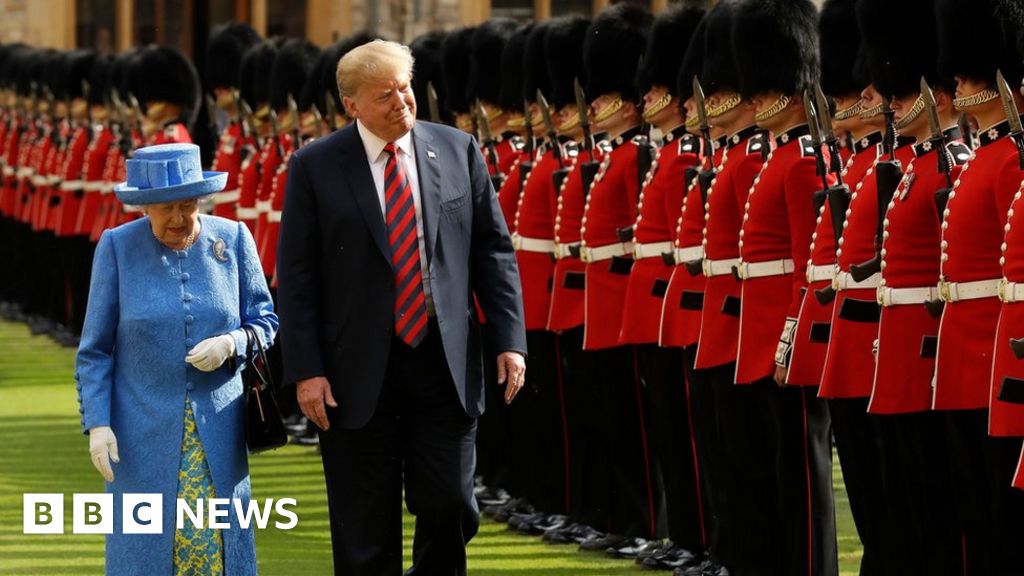
US President Donald Trump will make a three-day state visit to the UK from 3 to 5 June, Buckingham Palace has announced.
The president was promised the visit by Prime Minister Theresa May after he was elected in 2016 - but no date was set.
Mrs May said the visit was an "opportunity to strengthen our already close relationship".
President Trump met the Queen at Windsor Castle when they came to the UK in July 2018 for a working visit.
During the trip, the president also held talks with Mrs May at Chequers before heading to Scotland, where he owns the Turnberry golf course.
The president's last visit was marked by demonstrations around the UK.
In London, thousands of people took to the streets to voice their concerns.
And in Scotland, people showed their displeasure, both in Edinburgh and at Turnberry.
The National Police Chiefs' Council estimated that the police operation for the president's 2018 visit cost nearly £18m.
It said 10,000 officers from across the country were needed to cover the occasion.
The campaigners behind the 2018 protests - the Stop Trump coalition and Stand Up To Trump - have vowed to mobilise "huge numbers" once again in response to the visit.
Commons Speaker John Bercow has previously said he would be "strongly opposed" to Mr Trump addressing the Houses of Parliament during a state visit.
A spokeswoman for the Speaker's Office said a request to address Parliament would be "considered in the usual way", but did not say whether a request had yet been received.
What is a state visit?
A state visit is a formal visit by a head of state and is normally at the invitation of the Queen, who acts on advice from the government.
State visits are grand occasions, but they are not just ceremonial affairs. They have political purpose and are used by the government of the day to further what it sees as Britain's national interests.
Once the location and dates are confirmed, the government, the visiting government and the royal household will agree on a detailed schedule.
So what is involved?
The Queen acts as the official host for the duration of the trip, and visitors usually stay at either Buckingham Palace or Windsor Castle.
There is usually a state banquet, and a visit to - and speeches at - the Houses of Parliament may be included. The Speaker of the House of Commons is one of three "key holders" to Westminster Hall, and as such, effectively holds a veto over who addresses Parliament.
The Queen usually receives one or two heads of state a year. She has hosted 109 state visits since becoming monarch in 1952.
The official website of the Queen and the Royal Family has a full list of all state visits since then, including details of how the ceremonies unfold.
https://www.bbc.com/news/uk-48020410
2019-04-23 11:26:13Z
CBMiJGh0dHBzOi8vd3d3LmJiYy5jb20vbmV3cy91ay00ODAyMDQxMNIBKGh0dHBzOi8vd3d3LmJiYy5jb20vbmV3cy9hbXAvdWstNDgwMjA0MTA
Tidak ada komentar:
Posting Komentar